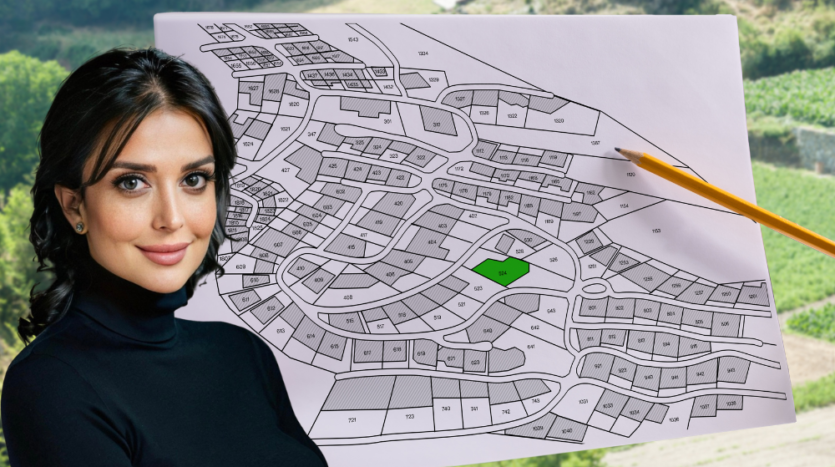Why You Should Check Zoning Laws and City Plans Before Buying Property
Buying property is a big decision, and one of the most important factors to consider is the surrounding environment. If you’re looking at a property near empty lots or public parking spaces, it’s tempting to see these areas as open space or a quiet part of the neighborhood. However, things may not stay that way forever. Empty lots could become the site of a new high-rise or commercial development, and public parking spaces might be repurposed for other projects.
To avoid surprises and ensure you’re making a smart investment, it’s crucial to check zoning laws and city plans before buying property near these areas. In this blog, we’ll explore why zoning and city planning are important and how they can impact your property’s future.
What Are Zoning Laws?
Zoning laws are local regulations that dictate how land can be used. Cities and municipalities divide areas into different zones—such as residential, commercial, industrial, and mixed-use—and set rules for each zone. These rules determine the types of buildings that can be constructed, the size and height of buildings, and even how far structures must be set back from the street.
For example, an area zoned for residential use may have restrictions on building commercial properties or high-rise apartments. On the other hand, an area zoned for commercial use might allow businesses, stores, or restaurants to be built.
Why Zoning Matters for Empty Lots
When you see an empty lot near a property you’re interested in buying, it’s important to understand what could potentially be built there. Zoning laws will tell you what type of development is allowed. Here’s why this matters:
- Future Construction Could Impact Your View or Privacy: An empty lot next to a property may offer a nice open view today, but if the lot is zoned for high-rise buildings, that view could be obstructed in the future. If privacy is important to you, a future construction project could put your home in direct view of other buildings, reducing the sense of seclusion or space.
- New Developments Could Increase Noise and Traffic: If the empty lot is zoned for commercial use, a new business or shopping center could be built nearby. While this may be convenient, it could also lead to increased noise, traffic, and congestion in the area. If you’re looking for a quiet, residential environment, this might not be ideal.
- Property Values Could Be Affected: Zoning laws influence property values. If the empty lot is used for a large development project, it could either increase or decrease the value of your property. For example, the construction of a new shopping center could make the neighborhood more desirable and raise property values, while the construction of a noisy industrial facility could lower them.
- Loss of Public Spaces: Sometimes, what looks like an empty lot may be public land that is intended for future development. This means that the space could eventually be turned into something like a parking garage or another public building. Losing an open space or recreational area could change the character of the neighborhood, making it feel more crowded or urbanized.
City Plans and Their Impact on Property Purchases
City plans are long-term strategies that outline how a city or municipality will grow and develop over time. These plans often include future projects, infrastructure improvements, and goals for zoning changes. While zoning laws set current rules, city plans give you insight into what could change in the future.
Here’s why checking city plans is just as important as understanding zoning laws:
- Planned Projects Could Affect Your Neighborhood: City plans often include upcoming infrastructure projects, such as new roads, public transportation hubs, or park developments. While some projects may enhance the neighborhood, others could disrupt it. For example, a new highway extension could bring more traffic to your street, or a planned subway station could increase foot traffic in your area.
- Zoning Changes Could Happen: While zoning laws set the rules for how land can be used today, city plans sometimes propose changes to zoning regulations. An area that is currently zoned for residential use could be rezoned for commercial or mixed-use development in the future. This means that even if an empty lot is currently zoned for homes, it could be rezoned for businesses or other developments down the line.
- Public Parking Spaces May Be Repurposed: Public parking spaces near the property you’re considering might seem like a bonus, offering convenient parking options for guests or extra vehicles. However, city plans could include projects that repurpose these spaces for other uses, such as bike lanes, public parks, or even new developments. Losing these parking spaces could be an inconvenience or change the dynamics of the neighborhood, especially if parking becomes scarce.
- Changes to the Character of the Area: City plans often have visions for how different parts of the city will evolve. Some areas may be targeted for urban renewal, which could lead to new construction, the demolition of older buildings, or the transformation of quiet neighborhoods into bustling commercial centers. If you’re buying property because you like the current character of the area, it’s important to check city plans to ensure it will remain the way you envision.
How to Check Zoning Laws and City Plans
Before purchasing property near an empty lot or public parking space, take the time to research the area thoroughly. Here are a few steps you can follow:
- Contact the Local Planning Department: Your city’s planning department can provide detailed information about the zoning laws for the area you’re considering. They can also let you know if there are any proposed zoning changes that could impact the property in the future.
- Review the City’s General Plan: Most cities have a general plan, which is a long-term roadmap for how the city will grow and develop. This plan will give you an idea of any major projects or changes that are planned for the area around the property.
- Look at Community Meetings and Public Hearings: Local community meetings and public hearings are good sources of information about upcoming projects or changes in zoning laws. Attending these meetings (or reviewing the minutes) can give you insight into how the neighborhood is likely to change in the coming years.
- Hire a Real Estate Attorney or Consultant: If you’re not familiar with zoning laws or city plans, consider hiring a real estate attorney or consultant who specializes in land use. They can help you navigate the legal aspects and ensure that you’re fully aware of any potential risks before purchasing the property.
Conclusion
When purchasing property near empty lots or public parking spaces, it’s essential to consider the future, not just the present. Zoning laws and city plans play a significant role in shaping how land can be used, which can directly impact your investment. By understanding the current zoning regulations and being aware of potential changes in city planning, you can make a more informed decision and avoid unpleasant surprises down the road. Checking these factors ensures that you’re not just buying a home or property, but also investing in a future that aligns with your needs and expectations.
Rana Real Estate Group is a trusted name in real estate, offering expert assistance for all your property needs. Whether you’re buying, selling, or investing, their experienced team provides tailored solutions and personalized service to help you achieve your goals. With a focus on integrity and transparency, they guide you through every step of the process, ensuring a smooth and successful transaction. Whether you’re a beginner or seasoned in real estate, Rana Real Estate Group is here to support you every step of the way.
Rana Khanjani, MBA
Specializing in Commercial, Residential, and Land

